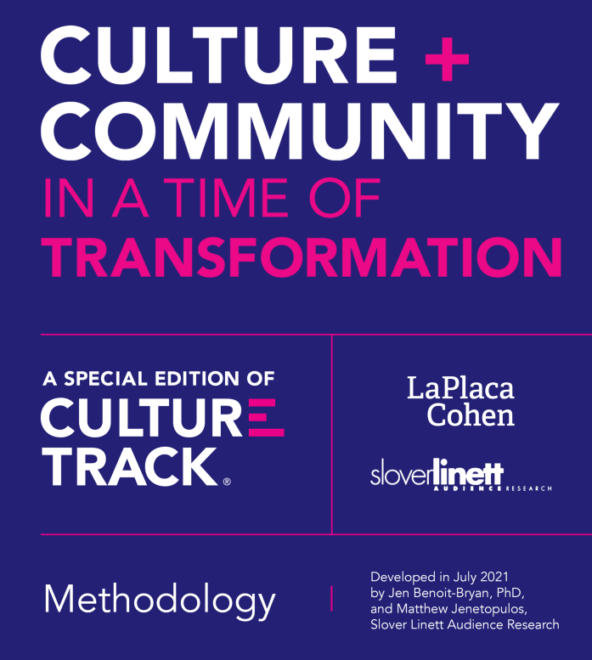News & Notes
Methodology appendix now available for Wave 2 of Culture + Community in a Time of Transformation
Slover Linett, in collaboration with LaPlaca Cohen and Yancey Consulting, is delighted to share our most recent methodology from the national Culture + Community in a Time of Transformation study. This document, authored by Dr. Jen Benoit-Bryan and Matthew Jenetopulos, reflects specifically on the tactical methodology of the research, and will support and help folks better understand the analysis of the upcoming report that will be released in the coming months.
Please read below for a peek into the document, and click here to read the methodology in full.
![]()
When this Culture & Community focused research originated in early 2020, it was intended to inform not just resilience but also innovation and progress toward equity in the cultural sector, and to give the public a voice in the future of cultural engagement. We understood that the pandemic would accelerate fundamental change in the sector and, as such, represented a crucial opportunity to address decades, even centuries of structural exclusion and Eurocentric cultural norms.
Our Wave 1 research was designed to uncover what people have been going through emotionally and physically during these painful times, and what they need from culture now, as opposed to the likelihood, timing and conditions for people to resume engaging with culture in the ways they had engaged before Covid-19. But this first wave was conducted before the murder of George Floyd ignited a national upswell of anger and activism and the Movement for Black Lives began to reshape the discourse around race and racism in every aspect of American life. We have now rededicated the initiative to racial equity, and in this wave of research we hoped to amplify BIPOC voices and illuminate the role of arts and culture organizations and experiences in social change. With input from Yancey Consulting, Slover Linett and LaPlaca Cohen, the Wave 2 survey was designed to not only support the self-examination already underway in the creativity and culture field and help make organizations and practices more inclusive and equitable, but also to help the sector as a whole play a more central role in the broader ecosystem of social change.

